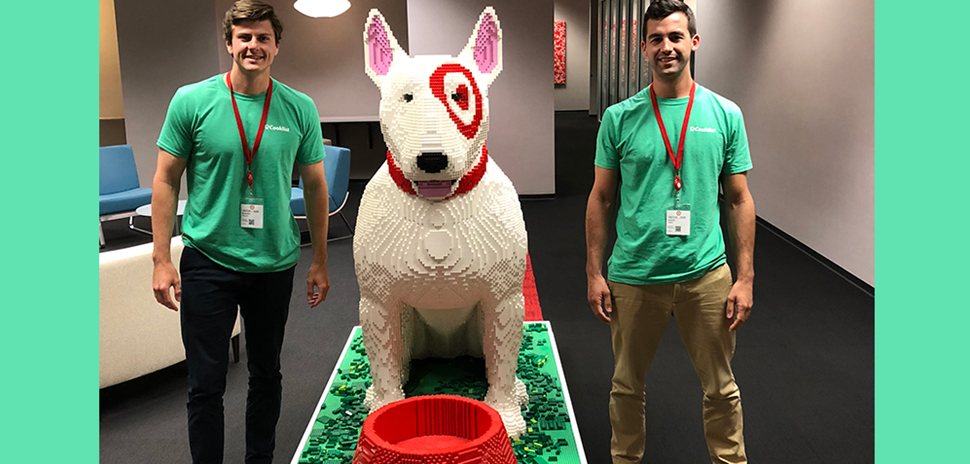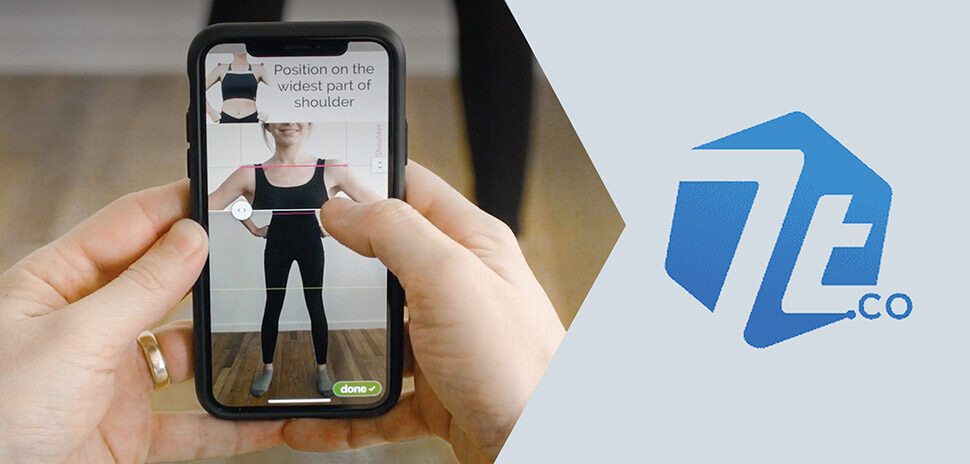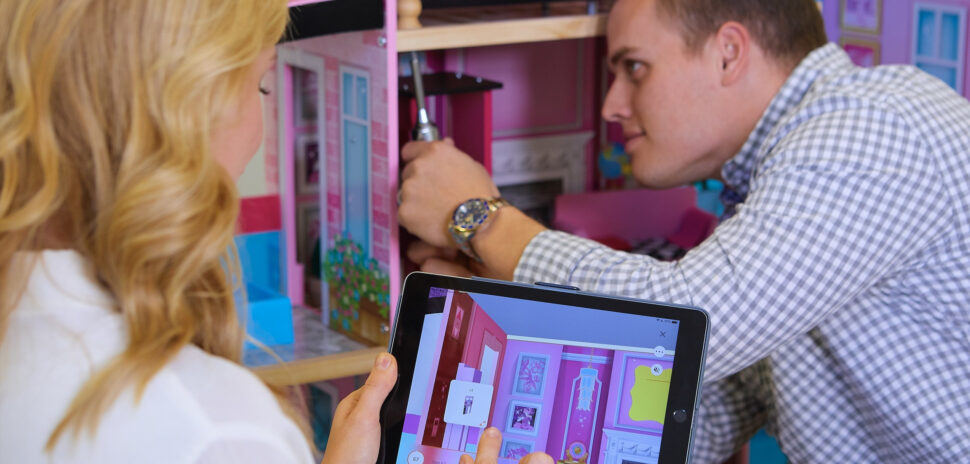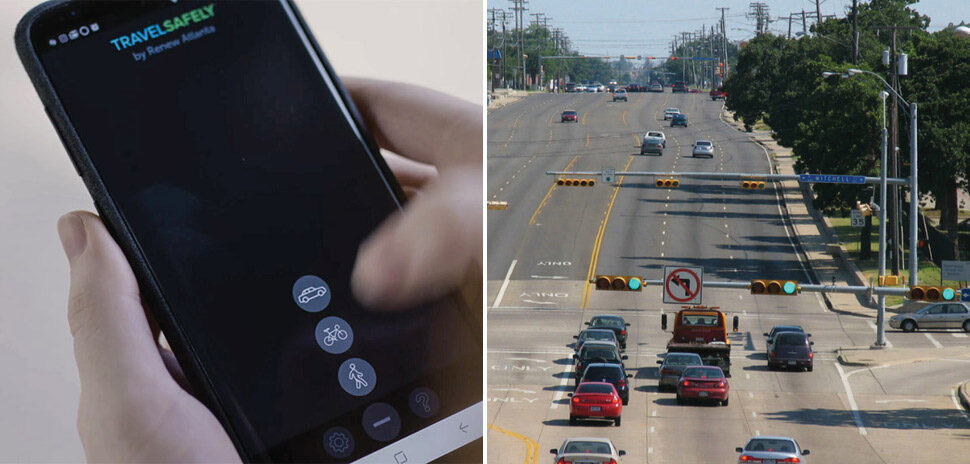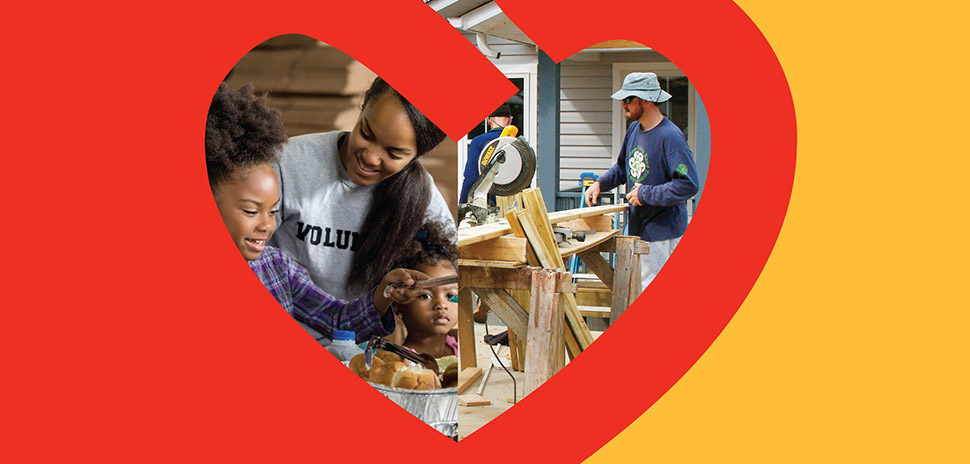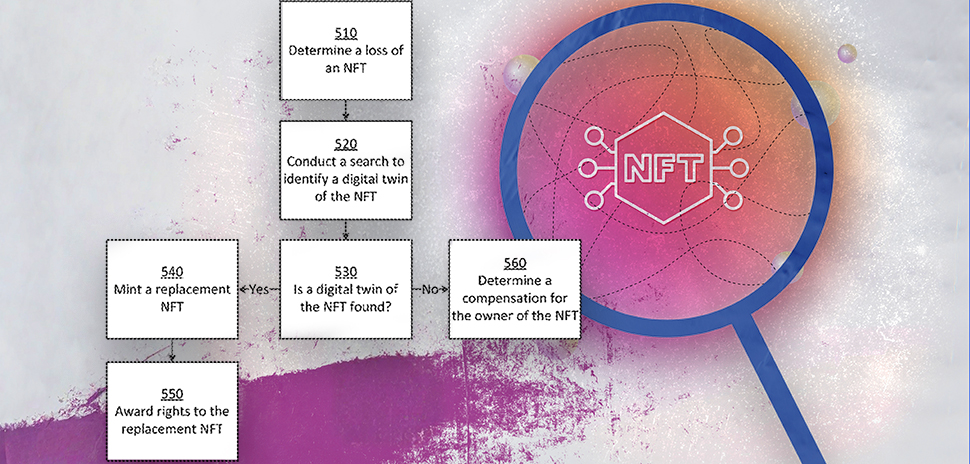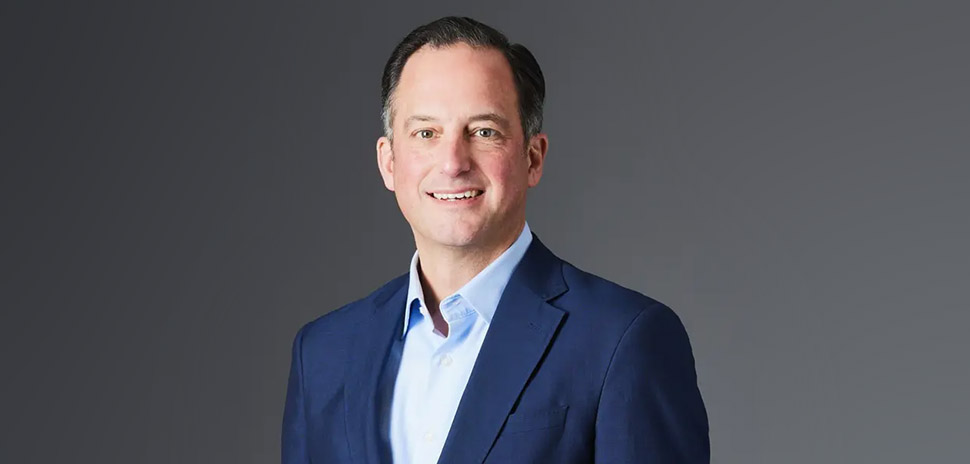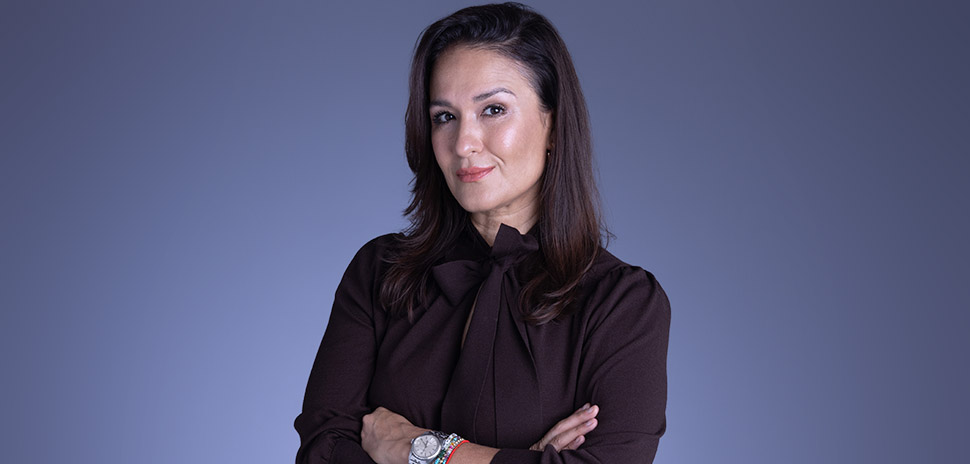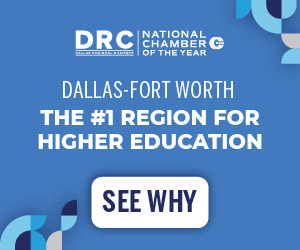About five years ago, Dallas entrepreneur Daniel Vitiello mailed a letter to Safeway with a $1 check enclosed to request his purchase history at the supermarket chain per the company’s instruction.
Safeway replied with a large envelope containing printouts of all of his family’s purchases made with their loyalty card a few weeks later. The company couldn’t supply it digitally.
Vitiello is now using what he learned from the exchange for a new mobile app, Cooklist, which hit app stores this week.
The app aims to help users eat more intelligently by downloading a user’s purchases made at grocery stores and pairing products with recipes, so a user can cook with the food they already have in their home and reduce the amount of food waste created.
It’s already caught the attention of global accelerator, Techstars, whose retail program in partnership with Target focuses on brining new technology, experiences, products, and solutions to retail. Cooklist was accepted along with nine other startups into the intensive three-month accelerator and is currently working at Target’s Minneapolis headquarters.
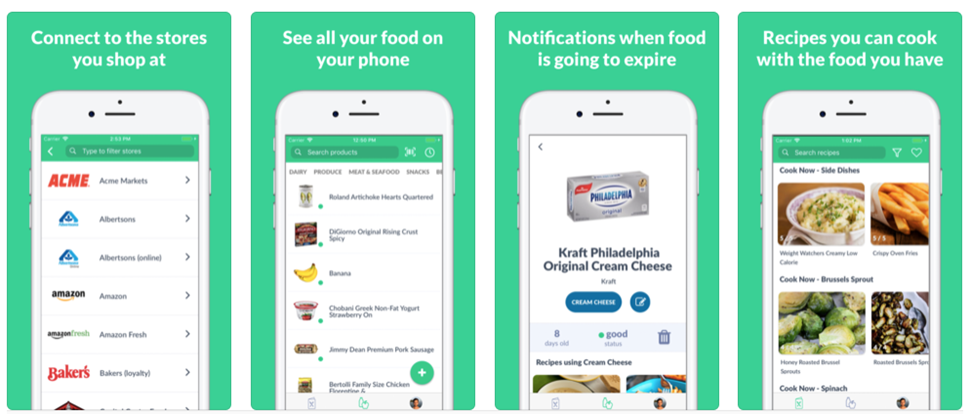
App screenshots courtesy of Cooklist
USING PERSONAL DATA FOR SMARTER COOKING
When he sent the letter to Safeway, Vitiello had been learning about the personal data ecosystem and wanted to gain access to data collected about himself, so he started with obtaining his grocery store data.
“There’s these companies that buy data from grocery stores, credit card companies, and other sources, and they put together profiles about everyone,” he said. “When I learned that there was this information about me that was being collected and bought and sold without my knowledge, I started thinking of ways that it would be better to work in the future, specifically where personal data is something that people have ownership and control over.”
At the time, building a script around purchase data wouldn’t work if the data couldn’t be accessed digitally. Fast forward to a year and a half ago, Vitiello revisited the idea with business partner Brandon Warman. They found that grocers had begun to allow customers to view their purchase history through their online accounts.
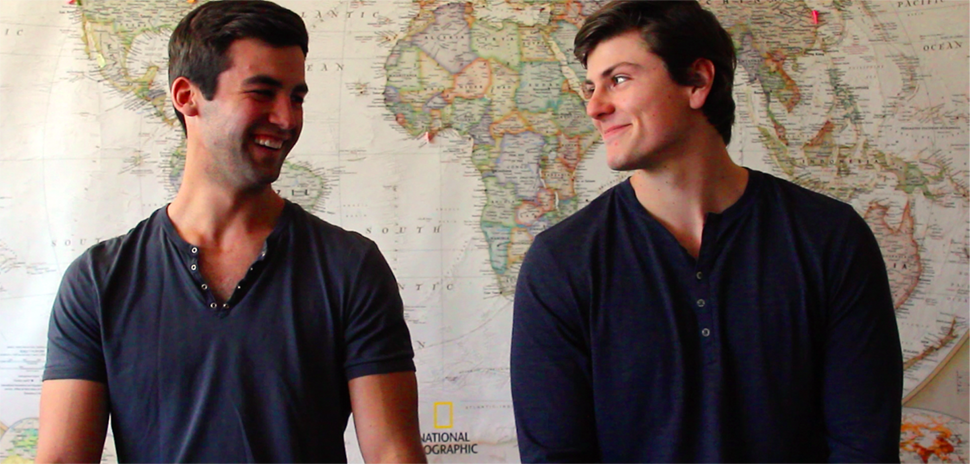
Cooklist founders Daniel Vitiello (left) and Brandon Warman, both 27, have been working together full time for the last four years.
They surveyed consumers about potential ideas, asking what they thought would be most useful: saving money through coupons, discounts, or different offers they could buy; a nutritional profile on everything they’ve purchased with recommendations for healthier alternatives; or, ways to save time and reduce food waste with a digital pantry that shows when food is about to expire and matches each product in the pantry to recipe ingredients.
Cooklist connects to more than 80 major U.S. grocery stores to automatically download users’ purchases into a digital pantry.
The results showed people were most interested in being able to see recipes you could cook with the food already in your home, thus the app, Cooklist, was born.
Vitiello and Warman, both 27, first met while playing on the same lacrosse team in Rockwall and have been working together full time for the last four years. Surveying was a tactic they used in developing their other companies, Handground and 3D Printed Skylines.
“The approach is sort of an open-architecture approach, where we let our potential customers know everything that we were thinking about and working on,” Warman said.
For Handground, a precision coffee grinder, Vitiello and Warman received more than 250,000 survey responses from coffee enthusiasts around the world. They raised $300,000 via a Kickstarter campaign in 2015. Now, Handground is a multimillion dollar business.
To create Cooklist, Vitiello and Warman tapped into this community sending an initial survey of more than 100 questions inquiring about respondents eating and shopping habits. The community also helped them beta test their web app last fall and iOS and Android app starting in April.
The app operates in a similar way that financial apps such as Mint do. It connects to more than 80 major U.S. grocery stores, including Walmart, Target, Kroger, Tom Thumb, Amazon, Costco, and Safeway to automatically download users’ purchases into a digital pantry and suggest recipes based on the foods they bought. Machine learning pairs products sold in grocery stores with ingredients from more than 1 million recipes online.
The app also will notify when products are about to expire and suggest recipes that utilize those ingredients to reduce food waste.
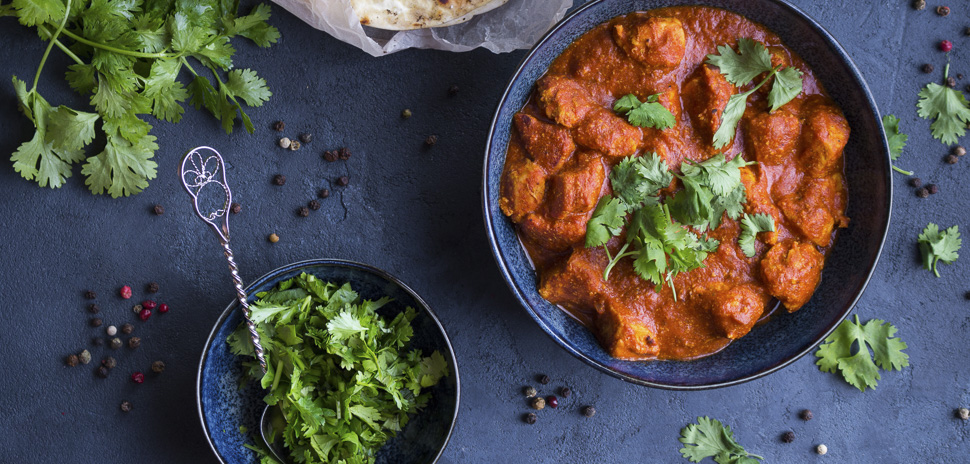
Machine learning pairs products sold in grocery stores with ingredients from more than 1 million recipes online. [image courtesy of Cooklist]
COOKLIST HEADS TO TARGET
The duo raised a pre-seed round of $250,000 from angel investors in the last two months. Techstars, a leading global seed accelerator, also will invest in the company.
For three months, Vitiello and Warman will work with more than 150 mentors, including executives from Target, such as chairman and CEO Brian Cornell and Chief Strategy and Innovation Officer Minsok Pak. They’ll participate in workshops, meetups, and a final demo day, where they’ll pitch the company to a group of investors from across the country.
Techstars Retail, which is in its third year, only accepts 10 startups for the program out of thousands of applicants.
Cooklist is the first startup from North Texas to be accepted into Techstars Retail.
“The 20 companies that have been in the program previously have now raised more than $50 million over the last two years collectively and have had a lot of success in piloting, partnering, and changing the retail industry,” Techstars Retail managing director Ryan Broshar said. “It’s a super intense program, and we like to say that you get a year’s worth of work done in the three months.”
Cooklist is the first startup from North Texas to be accepted into the program.
This year’s class includes: Clicktivated, Flashfood, ProcessBolt, Runerra, Satisfi Labs, Sozie, Staffless, To the Market, and Type W.
“We’re technology for spanning the gap between consumers and retailers, grocers specifically, so we figured the mentors in this specific accelerator are best positioned to help provide advice and guide us through the first steps that we take to create partnerships with grocery stores,” Warman said.
The duo’s main goals during the Techstars program are to form relationships with investors and also create partnerships with retailers so that Cooklist can push online shopping orders from the app to a store for pick-up or delivery.
“We’re technology for spanning the gap between consumers and retailers, grocers specifically …”
Brandon Warman
They are currently building the feature into the app, which would allow a user to select a recipe and then add ingredients not in their pantry to a shopping cart to be ordered online and delivered from a retailer.
The Techstars program could help them start conversations with Target about partnering with the retailer, who recently bought Shipt, a grocery delivery service for $550 million in December.
The majority of the startups in the Techstars program run pilots or projects with Target and other major retailers, Broshar said. Last year’s program results included Target investing in seed and Series A fundraising rounds for Inspectorio, a startup focused on reinventing the retail inspection process, supplying meal kits from Local Crate in nearly 200 stores, and including adult beverage rebates in Cartwheel for the first time via BYBE.
After Techstars, Vitiello and Warman plan to raise an official seed round in October and hire more developers to grow the app.
READ NEXT
3D Skyline Replica Maker Passes $7K Kickstarter Goal in 8 Hours
![]()
Get on the list.
Dallas Innovates, every day.
Sign up to keep your eye on what’s new and next in Dallas-Fort Worth, every day.

